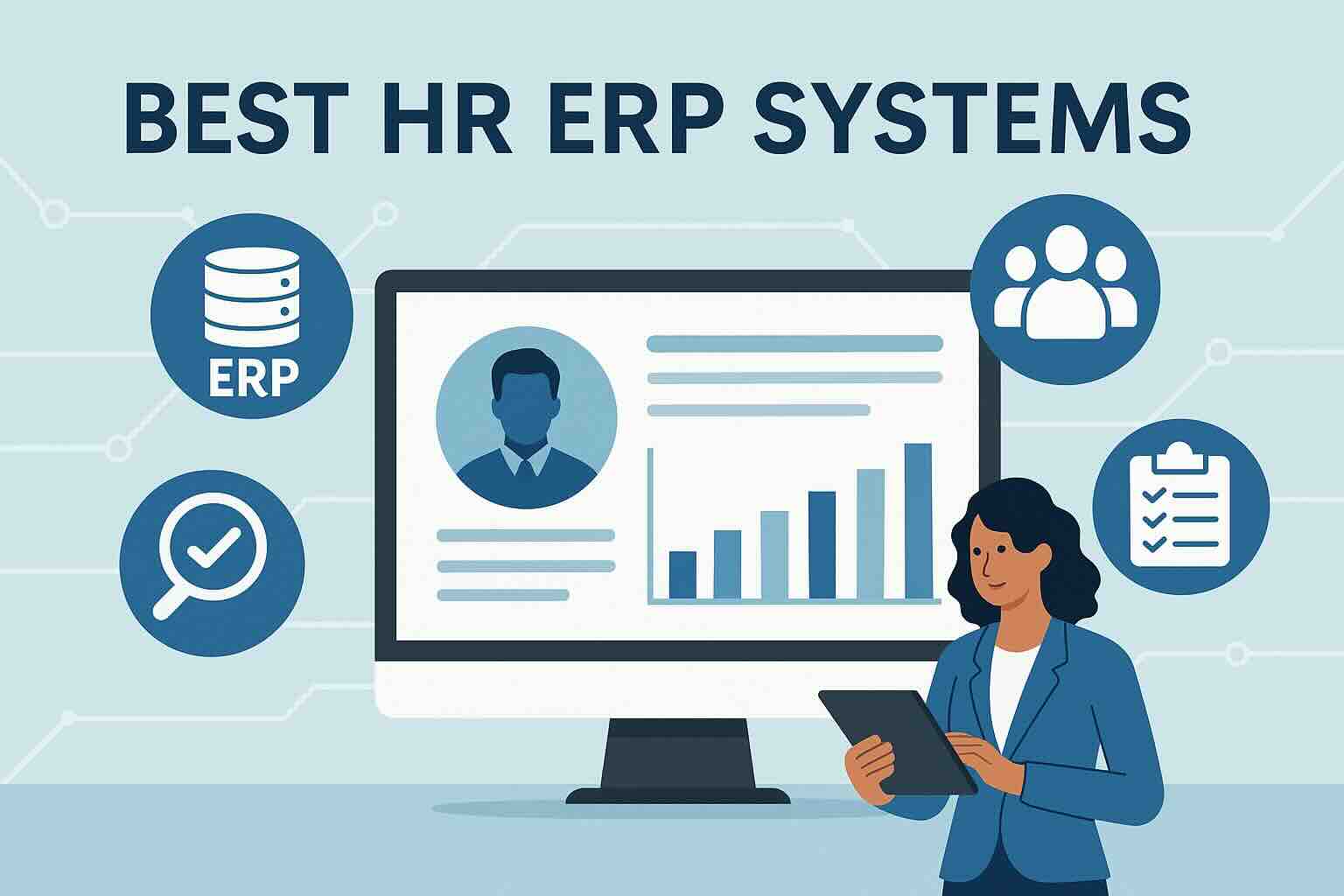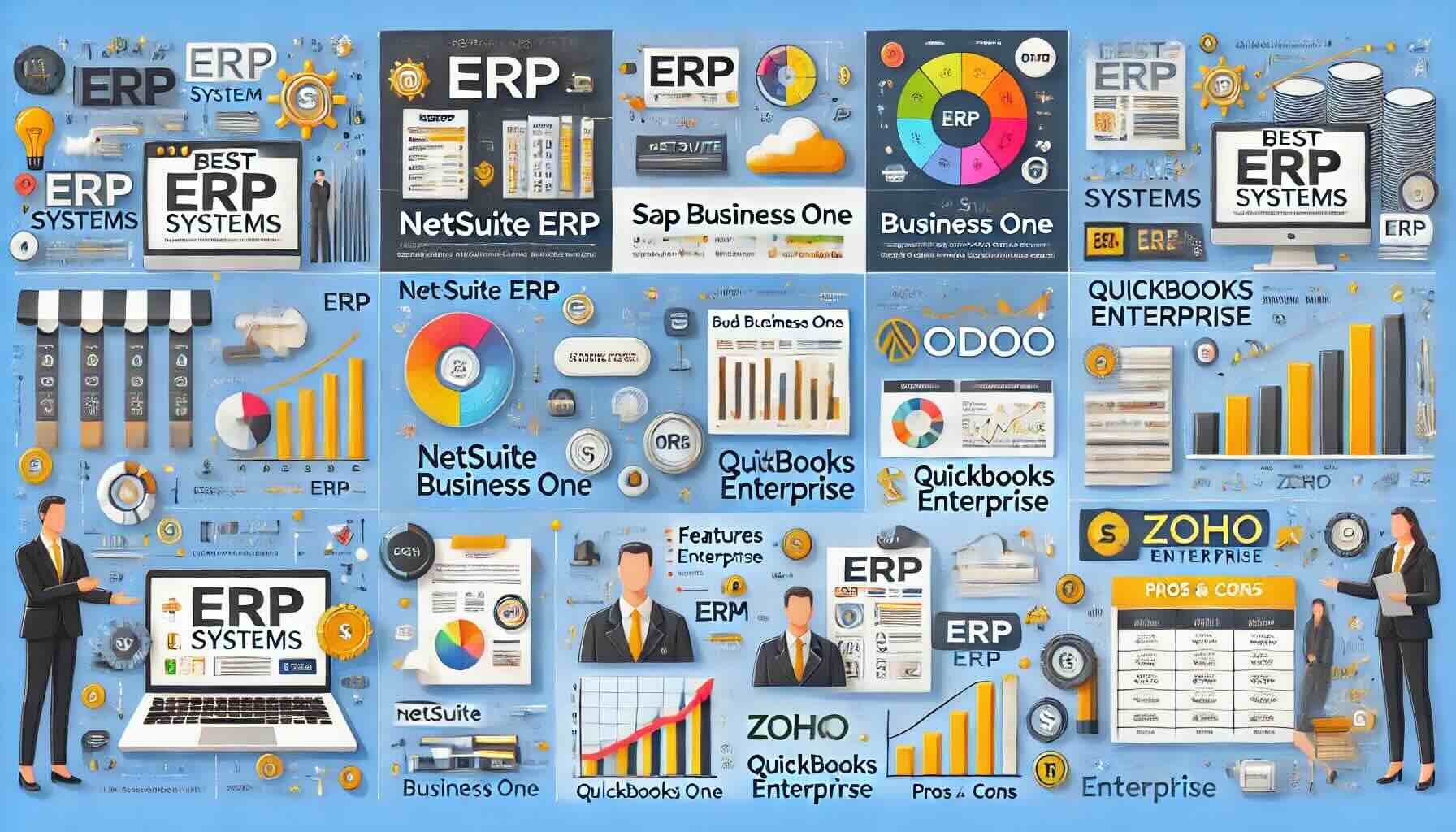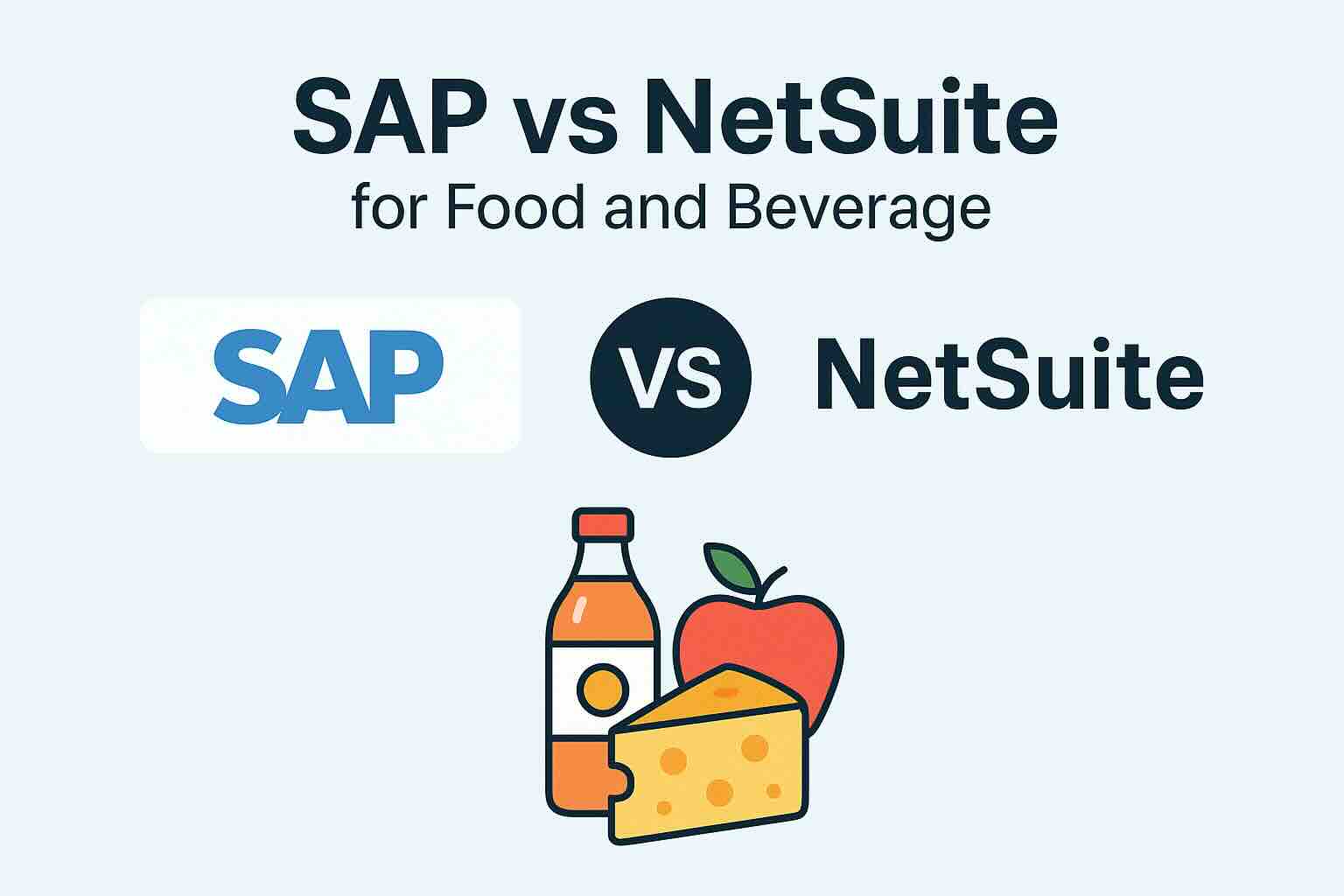Compare ERP for Technology Businesses

In the fast-paced and constantly evolving technology sector, efficient management of resources, finances, and projects is crucial. Enterprise Resource Planning (ERP) systems integrate various business processes, providing real-time data and improving operational efficiency. Choosing the right ERP system can significantly impact a technology company’s productivity and profitability. This blog will compare ERP for technology businesses, focusing on SAP S/4HANA, Workday, Microsoft Dynamics, Oracle Cloud, and SAP Business One. We will explore their strengths and weaknesses to help you make an informed decision.
SAP S/4HANA
Strengths:
- Real-Time Data Processing: SAP S/4HANA offers powerful real-time data processing capabilities. This is beneficial for technology companies that need immediate insights into project performance, inventory levels, and financial health.
- Comprehensive Functionality: The system provides a wide range of modules tailored to the needs of technology businesses, including project management, supply chain management, and financial management.
- Advanced Analytics: SAP S/4HANA includes advanced analytics and reporting tools, enabling detailed analysis of operational performance, customer trends, and financial outcomes.
- Scalability: The platform is highly scalable, making it suitable for both small tech startups and large multinational corporations. It can handle increasing data loads and user demands as the business grows.
Weaknesses:
- High Cost: The cost of implementing and maintaining SAP S/4HANA can be prohibitive, especially for small to mid-sized companies. The licensing fees, implementation costs, and ongoing maintenance require significant financial investment.
- Complex Implementation: Implementing SAP S/4HANA is complex and time-consuming, often requiring dedicated IT resources and expert consultants.
- Customization Challenges: While highly functional, customization can be limited and may require additional development to meet specific business needs.
- User Training: The system’s complexity necessitates extensive user training, which can be time-consuming and costly. Ensuring that all employees can effectively use the system can be a challenge.
Click this link to find out more about SAP S/4HANA for technology businesses.
Workday
Strengths:
- User-Friendly Interface: Workday is known for its intuitive and user-friendly interface, which reduces the learning curve and enhances user adoption. This is particularly beneficial for technology companies with diverse teams.
- Comprehensive HR Management: The platform excels in human capital management, providing robust tools for recruitment, payroll, benefits administration, and performance management.
- Real-Time Insights: Workday offers real-time insights into business operations, allowing technology companies to make informed decisions quickly.
- Cloud-Based: As a cloud-based solution, Workday ensures accessibility from anywhere, regular updates, and scalability, which is ideal for fast-growing tech companies.
Weaknesses:
- Cost: Workday can be expensive, with high subscription fees and implementation costs that may be a barrier for smaller companies.
- Limited Industry-Specific Features: While Workday excels in HR and finance, it may lack some industry-specific features required by technology companies, such as advanced project management or supply chain modules.
- Customization Limitations: Customization options can be limited compared to other ERP systems, potentially requiring additional development work to meet specific needs.
- Integration Challenges: Integrating Workday with existing systems and third-party applications can be challenging and may require additional resources.
Click this link to find out more about Workday for technology businesses.
Microsoft Dynamics
Strengths:
- Integration with Microsoft Products: Microsoft Dynamics offers seamless integration with other Microsoft products such as Office 365, Azure, and Power BI, facilitating a unified and efficient workflow.
- User-Friendly Interface: Known for its intuitive and user-friendly interface, Microsoft Dynamics reduces the learning curve for employees, ensuring quick adoption and efficient use of the system.
- Customization: The platform provides extensive customization options, allowing tech companies to tailor the system to meet their specific needs.
- Scalability: Microsoft Dynamics is highly scalable, making it suitable for both small startups and large enterprises. It can handle increasing data loads and user demands as the business grows.
Weaknesses:
- Cost: The initial setup and ongoing subscription fees can be high, making it a significant investment for smaller tech companies.
- Complex Implementation: Implementing Microsoft Dynamics can be complex and time-consuming, often requiring specialized IT expertise and external consultants.
- Maintenance: Regular maintenance and updates are necessary to keep the system running smoothly, which can add to the overall cost and resource requirements.
- Integration Challenges: Integrating with non-Microsoft applications can be challenging and may require additional customization.
Click this link to find out more about Microsoft Dynamics for technology businesses.
Oracle Cloud
Strengths:
- Comprehensive Suite: Oracle Cloud offers a comprehensive suite of applications, including finance, HR, supply chain, and customer management, tailored to the needs of technology companies.
- Scalability: The platform is highly scalable, supporting both small and large operations and enabling easy expansion as the business grows.
- Advanced Security: Oracle Cloud provides top-tier security features, ensuring the protection of sensitive data and compliance with industry regulations.
- Real-Time Analytics: The system offers real-time analytics, giving companies immediate access to critical operational data and insights.
Weaknesses:
- Cost: Oracle Cloud is a significant financial investment, with high licensing and implementation costs that may be prohibitive for smaller companies.
- Complex Implementation: The implementation process can be complex, requiring expert guidance and a dedicated IT team.
- Customization Challenges: Customizing Oracle Cloud to meet specific needs can be challenging and time-consuming, potentially requiring additional development resources.
- User Training: Extensive user training is necessary to fully utilize the system’s capabilities, which can be a time-consuming and costly process.
Click this link to find out more about Oracle Cloud for technology businesses.
SAP Business One
Strengths:
- Affordability: SAP Business One is designed for small to mid-sized businesses, offering a more affordable solution compared to SAP S/4HANA. This makes it accessible for companies with limited budgets.
- Ease of Use: The system’s user-friendly interface makes it easy for employees to learn and use, reducing the training time and increasing productivity.
- Comprehensive Features: Despite its affordability, SAP Business One offers comprehensive features, including inventory management, financial management, and customer relationship management.
- Integration with SAP Solutions: SAP Business One integrates seamlessly with other SAP solutions, providing a path for growth and expansion. This ensures that companies can scale their operations as needed.
Weaknesses:
- Limited Scalability: While suitable for small to mid-sized businesses, SAP Business One may not scale as effectively for large enterprises with complex needs.
- Customization Challenges: Customizing SAP Business One to meet specific business requirements can be challenging and may require additional development efforts.
- Support Limitations: Support options for SAP Business One may be limited compared to larger SAP solutions, potentially impacting the level of service available.
- Integration Challenges: Integrating SAP Business One with non-SAP systems can be difficult, requiring additional resources and technical expertise.
Click this link to find out more about SAP Business One for technology businesses.
Conclusion
Choosing the best ERP for technology businesses depends on the specific needs, resources, and goals of the organization. SAP S/4HANA, Workday, Microsoft Dynamics, Oracle Cloud, and SAP Business One each offer unique strengths and face certain challenges. By carefully evaluating these factors, technology companies can select an ERP system that enhances their operational efficiency, customer satisfaction, and overall business performance.
To compare these ERP solutions and many more, you can use our new AI-powered Compare ERP tool. It’s free to use and you get a guaranteed discount on your first year’s licence fees with a referral from Compare ERP.









